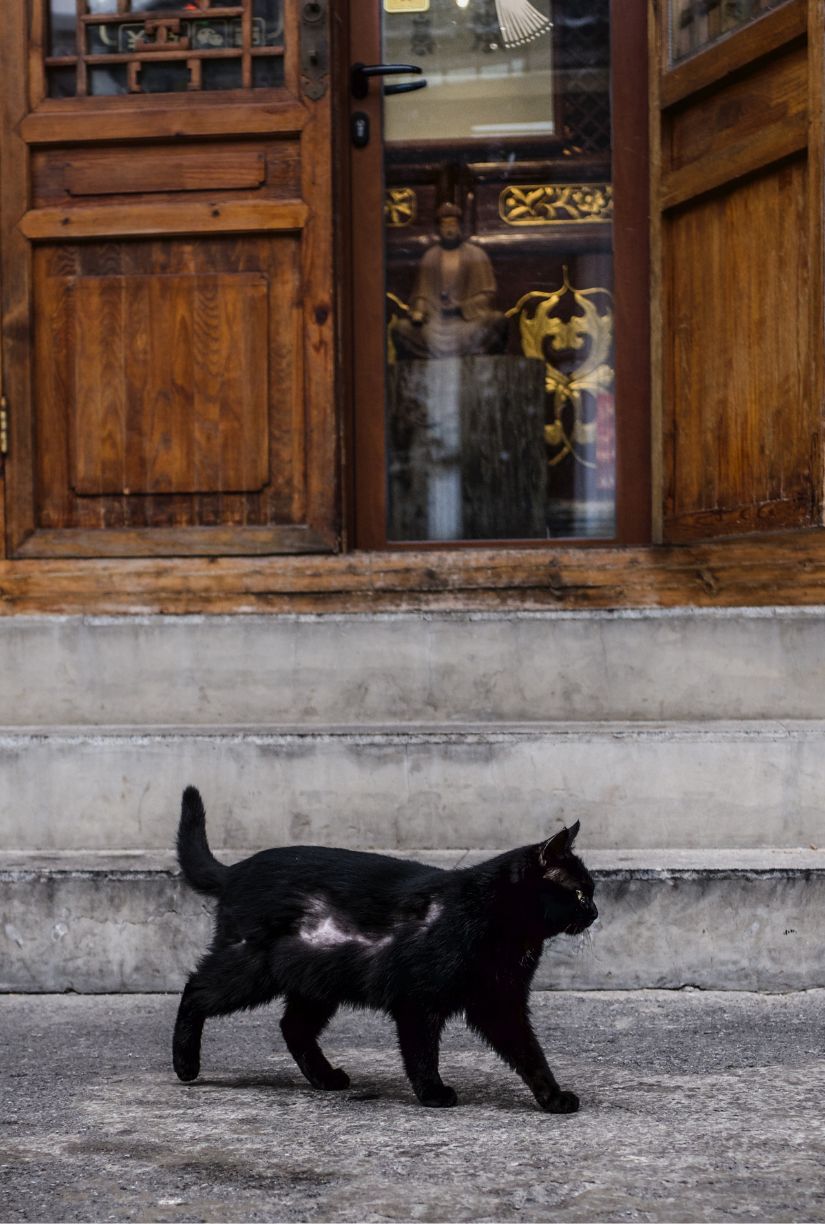Why We Don’t Open Umbrellas Indoors…. And Other Superstitions, Explained

1. Walking under a Ladder
- Superstition: It is deemed unlucky to pass below a ladder.
- Origin: This superstition can be traced back to ancient Egypt, where the triangle shape formed by a ladder against a wall symbolized the trinity of gods, and disrupting this shape by walking through it was seen as disrespectful and displeasing to the deities. This belief transitioned into Christianity, associating ladders with betrayal and death, particularly when near gallows during the medieval era.
2. Breaking a Mirror
- Superstition: Smashing a mirror results in seven years of bad luck.
- Origin: This superstition dates to ancient times, with the Romans believing that mirrors held a fragment of one's soul, and damaging a mirror would harm the soul's reflection. The idea that life renewed itself every seven years further reinforced the belief in seven years of misfortune. Given the high cost of mirrors in the past, discouraging their breakage may have had financial motivations.
3. Friday the Thirteenth
- Superstition: Friday the 13th is an unlucky day.
- Origin: Both the number 13 and Friday have long been linked to ominous meanings. In Christianity, 13 individuals were present at the Last Supper, coinciding with Jesus' crucifixion on a Friday. This overlap of negative symbols created a double dose of ill fate, solidifying the superstition surrounding this day.
4. Sweeping Over Someone's Feet
- Superstition: Sweeping a broom over someone's feet impedes their chances of marriage.
- Origin: Originating from African and African-American folklore, this belief likely evolved from practices aimed at warding off malevolent spirits. Over time, it transformed into a cautionary tale, particularly focused on young women, stressing the preservation of their marital prospects.
5. Opening an Umbrella Indoors
- Superstition: Unfolding an umbrella indoors brings bad luck.
- Origin: This superstition likely arose in Victorian England due to the hazards posed by large umbrellas with metal spokes when opened indoors. The practical reason behind this belief was to prevent accidents or damage. Earlier versions of this superstition can be traced back to ancient Egypt, where parasols symbolized power and protection from the sun god Ra.
6. Knocking on Wood
- Superstition: Rapping on wood averts misfortune or safeguards good luck.
- Origin: Thought to have originated from ancient pagan cultures like the Celts, who believed in tree-dwelling spirits, knocking on wood was a way of seeking protection from these spirits or diverting their attention when discussing positive circumstances. It may also have connections to Christian customs symbolizing ties to the wooden cross of Christ.
7. Meeting a Black Cat
- Superstition: Crossing paths with a black cat signifies approaching bad luck.
- Origin: In ancient Egypt, black cats were revered and protected. However, during the European Middle Ages, black cats became associated with witches and malevolence, with beliefs suggesting that witches could take the form of black cats. The sight of a black cat was seen as an indication of nearby witchcraft, leading to associations with ill fortune. Interestingly, in certain contemporary cultures such as Scotland and Japan, black cats are symbols of good luck.
8. Tossing Salt Tradition
- Superstition: Tossing salt over your shoulder after spilling it wards off bad luck.
- Origin: Dating back centuries, this superstition originates from the high value placed on salt in ancient times, where it even served as a form of currency. Spilling salt was considered unlucky, with some cultures believing that evil spirits lurked behind one's left shoulder. Tossing salt over the left shoulder was believed to blind or repel these malevolent entities and reverse any resulting misfortune.
Despite the progress of science and logic in modern times, superstitions persist as integral parts of our cultural legacy, providing a sense of control in uncertain times or comfort in the face of the unknown. Whether one embraces superstitions or finds them intriguing, exploring the peculiar origins of these shared beliefs can add an extra layer of fascination and entertainment, potentially making one a standout at trivia events.

